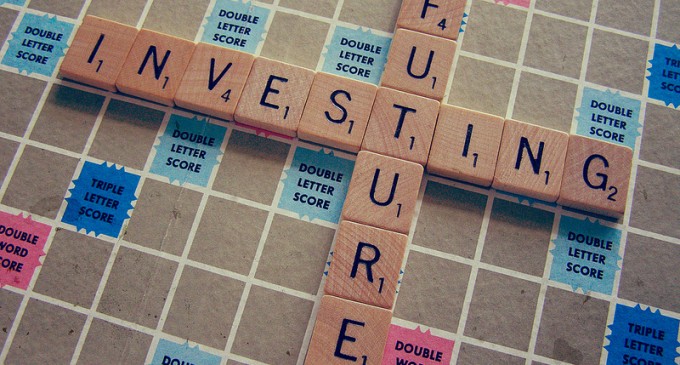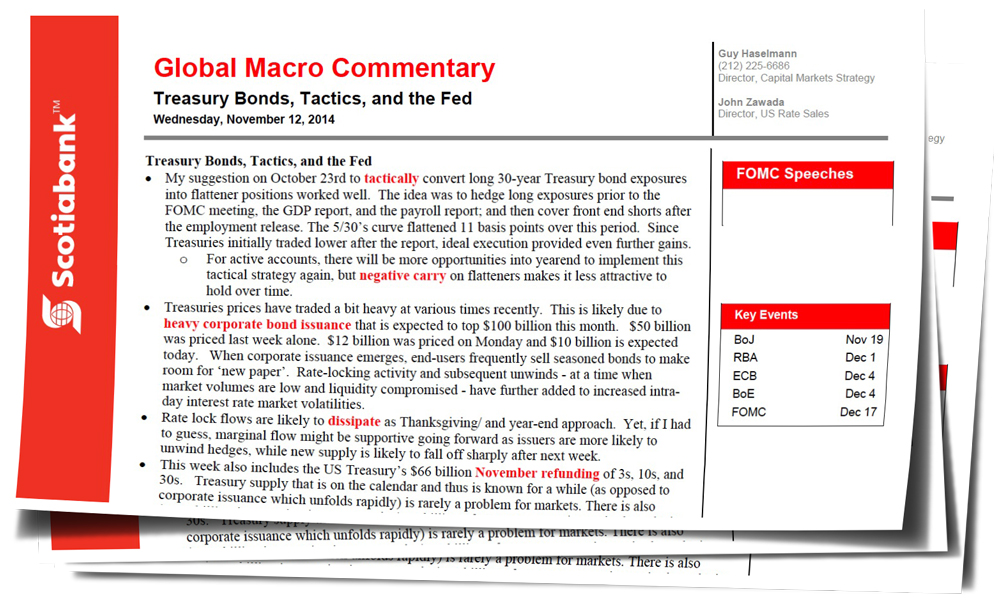by 25iq
1. “The question is: Is the cable business going be a great business; who is going to make the money? It may well be that the Disneys of the world make the money and cable and video continue to get squeezed. But I think at least for now they’ve got enough pricing power in broadband to make up for that.” “They key to future profitability and success in the cable business will be the ability to control programming costs through the leverage of size.” No one has taught me more about transfer pricing than John Malone and the people who work for him. I was lucky enough to work for Craig McCaw who started in the cable TV business before he became a pioneer in cellular communications and interacted with John Malone, TCI and Liberty over the years.
The takeaway from this quote is simple: every business has a value chain and profit pools. How profit is allocated between the layers in the value chain is determined by the relative transfer pricing power of the layers. Lots of businesses create value, but no profit. This fact is poorly understood. The profitability of an industry not the same issues as its importance. As an example, airlines create huge value for society (consumer surplus) but generate very little profit (producer surplus).
2. “[Don’t] expose yourself to one financial source.. diversification of every kind.. isolation of financial risk..” The best way to combat the wholesale pricing power of a supplier or customer is to have alternatives. As an example, the cable industry would never rely on a single supplier of a hardware component for that reason. The second point John Malone makes is that creating watertight compartments in a ship (and in a business) to isolate risk is just good engineering.
3. “[The sort of ] business that investors want today [is] predictable. It’s got glue, sustainable revenue streams, …meaningful growth and pricing power in parts of the business.” John Malone likes a strong economic moat. The test for whether a moat exists is whether the business has “pricing power.” Warren Buffett puts it this way: If you must hold a prayer meeting to raise prices, you don’t have much of a moat. What happens when you don’t have a moat? Here’s John Malone with an example: “The fiber business is a good business—for one or two providers—but for thirty? All funded with borrowed money? …(I’ll repeat,) great business for one or two providers. Questionable business for six, especially when it’s financed with a bunch of bonds.” I lived this one up close and personal with a portfolio company known as NextLink/XO and know all too well that huge increases in supply when there are many providers is not good for profits. Some people during the bubble thought the Internet had suspended the laws of supply and demand, but they were proven wrong.
4. The concept that cable television looked more like real estate than it did manufacturing was always obvious, … to me, anyway. And I think the financial markets really didn’t have a model for cable, because the industry was a small, startup industry with no real following. Coming out of that period of the ’70s, the industry needed some model, some metric how the market could value us. We decided out …to go on a cash flow metric very much like real estate. Levered cash flow growth became the mantra out here. A number of our eastern competitors early on were still large industrial companies — Westinghouse, GE, — and they were on an earnings metric.”
“It’s not about earnings, it’s about wealth creation and levered cash-flow growth. Tell them you don’t care about earnings..” “The first thing you do is make sure you have enough juice to survive and you don’t have any credit issues that are going to bite you in the near term, and that you’ve thought about how you manage your way through those issues.”
“I used to go to shareholder meetings and someone would ask about earnings, and I’d say, ‘I think you’re in the wrong meeting.’ That’s the wrong metric. In fact, in the cable industry, if you start generating earnings that means you’ve stopped growing and the government is now participating in what otherwise should be your growth metric.” Among the many lessons I have learned about finance are as follows: (1) accounting earnings are an opinion; (2) free cash flow is a fact and (3) the only unforgivable sin in business is to run out of cash. A key figure for John Malone in terms of raising the necessary cash was Michael Milken, who was also a key figure for many other people in this business world like Bill McGowan (MCI Communications), Bob Toll (Toll Brothers), Steve Wynn (Wynn Resorts), Steve Ross (Time Warner), Rupert Murdoch (News Corporation), Craig McCaw (McCaw Cellular, Nextel), and Ted Turner (CNN).
5. “Our skills here, internally, are very much in financial engineering.” “Entrepreneurs will always be able to take an asset, leverage it up, operate it tightly and make it worth money to them and get good equity returns.” “You can borrow money against a growing cash-flow stream, and as long as your growth rate’s faster than your cost of money it’s a wonderful business.”
“The cable industry created so many rich guys. It was the combination of tax-sheltered cash-flow growth that was, in effect, growing faster than the interest rate under which you could borrow money.” “Inflation lets you raise your rates and devalue your liabilities.” How can I say this better than John Malone? I can’t. So I will leave it at that.
6. “[Taxes are] a leakage of economic value. And, to the degree it can be deferred, you get to continue to invest that component on behalf of the government. You know, there’s an old saying that the government is your partner from birth, but they don’t get to come to all the meetings.” “Better to pay interest than taxes.” John Malone is a master of deferring taxes. In this video lecture John Malone explains the difference between tax avoidance and tax evasion. What John Malone said he wants to do is make sure that Uncle Sam does not collected his taxes too early. Deferring taxes allows the value of the shares to compound pre-tax. In the video he also talks about how debt, which has interest that is tax deductible, creates significant tax advantages versus equity.
Warren Buffett and Jeff Bezos defer taxes too. Here’s Charlie Munger on this point: “If you’re going to buy something which compounds for 30 years at 15% per annum and you pay one 35% tax at the very end, the way that works out is that after taxes, you keep 13.3% per annum. In contrast, if you bought the same investment, but had to pay taxes every year of 35% out of the 15% that you earned, then your return would be 15% minus 35% of 15%, or only 9.75% per year compounded. So the difference there is over 3.5%. And what 3.5% does to the numbers over long holding periods like 30 years is truly eye-opening. If you sit back for long, long stretches in great companies, you can get a huge edge from nothing but the way that income taxes work.”
7. “Just like making movies. God help us if we think we can pick winners and losers when it comes to making movies. Even the good guys don’t know how to do that. There are certain fields, in my experience, that it’s good to stay out of. One can be a good investor in them, if one’s prudent, but one shouldn’t fool oneself into thinking one knows how it really works.” This quotation is all about staying within a circle of competence and avoiding hard problems. One excellent way to avoid problems is quite simple: understand that people who know what they are doing make fewer mistakes. Hollywood is a particularly troublesome place to try to make money if you are not an insider. Cash travels into Hollywood from outside investors, but rarely comes out. You sometimes read about a hit movie, but rarely the failures (which causes survivor bias and investor dysfunction).
8. “Recently somebody said, ‘Hey, you lost weight,’ and I said, ‘Yeah, thirty-five pounds and three and a half billion dollars’.” “I’ve done lots of bad deals… Yeah, I’ve done some horrific deals.” “When I stick to my knitting I do okay. It’s – it’s when I listen to some pied piper.” John Malone is talking about the Internet bubble in this quote, when he refers to the money he lost. It was a very crazy time. The level of fear of missing out (FOMO) is hard to convey to someone who did not go through it.
Valuations were nutty. John Malone once called AOL “a big puff bag.. it didn’t have any real assets. A lot of the revenue AOL was reporting as recurring even though it was one time.” Lots of paper wealth was created, which over a very short period of time quickly evaporated. The speed at which the bubble was destroyed was stunning. One month it was possible to raise billions of dollars in cash and the next month you could not raise 5 cents.
9. “Don’t ever bid against Rupert Murdoch for anything Rupert wants, because if you win you lose. You will have paid way too much.” Warren Buffett’s advice about auctions is simple: Don’t go. A lollapalooza of psychological factors causes people’s minds to turn to mush at auctions. When it is a charity auction, that dynamic is all good. But in business, auctions can create huge problems – especially if you are bidding against Rupert Murdoch. I heard a famous billionaire once say that no other billionaire scares other billionaires more than Rupert Murdoch.
10. “You just have to be opportunistic, and try to figure out what creates value—where the bottom is, what creates incremental value, and in what combinations.” This quote is about optionality. Rather than trying to predict what is going to happen, it is a far more effective to be in a position to capitalize on something that unexpectedly happens. One reason John Malone is so successful is that he has what Greg Maffei has called a “frictionless mind.” What Greg Maffei means is John Malone’s mind can turn on a dime as opportunities change.
As an aside, many of these opportunities John Malone benefited from over the years were acquisitions. John Malone believes the nature of vertical and horizontal acquisitions are very different and that “a lot of mergers fail for cultural reasons. Vertical acquisitions are much tougher than horizontal ones. You are essentially buying a business you don’t know and you don’t understand.”
11. “You’ve got to play both offense and defense.” Watching John position himself in his competition with Murdoch was fascinating. As much as John Malone wants to avoid having single a supplier or customer, he would want to be one if he could. That set off interesting bidding wars in the industries that he is involved in. His battles with people like Rupert Murdoch are fascinating to watch. Because I worked for Craig McCaw at the time, I had a ringside seat during the battle of what was known as “the death star”. John Malone described it this way: “We persisted with PrimeStar right up to the point where our license to buy a high-speed satellite – our joint venture with Rupert Murdoch to use his license – was shot down by the government. So we persisted all the way through and ultimately sold PrimeStar to DirectTV – broke my heart.”
12. “Broke my heart to do the AT&T deal. When you’re the controlling shareholder and somebody comes along and offers you a 40-percent premium to a record high stock price, really full valuation, and to a liquid security, you just can’t turn it down. In retrospect, I wish I hadn’t done it.” Sometimes you need to sell a business for one reason or another and its breaks your heart to do so. McCaw Cellular was such a situation. I do still wish McCaw Cellular had not been sold to AT&T. It was a great business that accomplished great things.
Notes:
Biz Journals – John Malone talks of his past and future
Ken Auletta – A Conversation with John Malone
Tycoon Playbook – The Cable Cowboy
Broadcasting Cable – Malone Again
Multichannel.com – Unleashing Liberty
Copyright © 25iq














